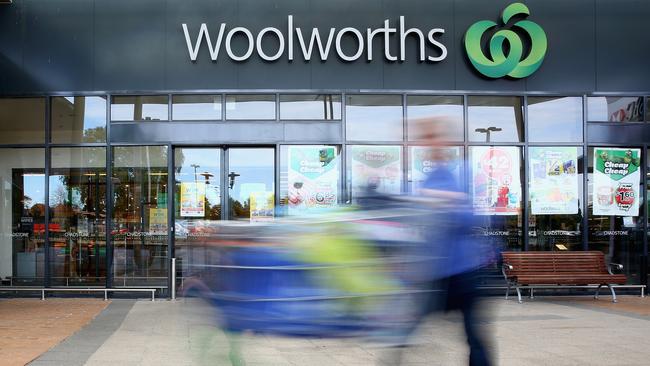Supermarket majors face uphill battle as competition heats up: Morgan Stanley
Woolworths’ “honeymoon” may be over as price competition among the supermarkets tightens, according to Morgan Stanley.

The grocery “honeymoon” may be over for Australia’s major supermarkets as competition tightens and consumers come under increasing cost pressure, according to Morgan Stanley analysts.
The price gap between the major supermarkets and Aldi now stands at 18 per cent after bottoming at 14 per cent two years ago, following a period of investment by Coles and Woolworths, say analysts. Grocery prices at Aldi dropped by 1.6 per cent year-on-year in August.
“Given that Aldi effectively sets the supermarkets pricing umbrella, we think Coles and Woolworths will need to continue to incrementally invest in price,” the report said.
“We estimate that now around 75 per cent of the Australian population is now able to shop at Aldi and/or Costco relatively easily.”
Woolworths’ (WOW) sales growth went from over one per cent losses in the third quarter of the 2015-16 financial year to two per cent growth in the third quarter of the 2016-17 financial year. Morgan Stanley said this recent improvement was sparked by Woolworths’ loyalty program relaunch and investment in labour hours to improve checkout wait times, but Morgan Stanley doesn’t expect these gains to continue.
“Woolworths has improved its execution from a very low level, but looking ahead as it laps over more difficult comparisons, we think these free kicks are over,” the report said.
“We think the market is too optimistic on the Woolworths recovery story and if it disappoints these expectation, the shares will likely fall.”
Morgan Stanley was slightly more optimistic on the outlook for Wesfarmers’ (WES) Coles, saying its performance may improve following further price investment, forcing Woolworths to match.
“[Wesfarmers] earnings have proven resilient given higher coal prices and as the Bunnings ANZ business leveraged the housing cycle,” the report said.
Consumers are being driven to cheaper alternatives to Coles and Woolworths as real wage growth remains flat and essentials cost inflation rises, analysts noted.
“We think that with greater pressure, consumers are more likely to economise by either shifting to private brand products or the discounters.”
The report painted a bleak outlook for Coles and Woolworths for when Amazon enters the market, predicting that Amazon may be able to sell non-perishables, such as toothpaste and dishwashing tablets, for a much cheaper price than the major supermarkets.
Aldi, with its successful new format, is only halfway to its final store destination.
“We think Aldi will continue to succeed,” the report said.






To join the conversation, please log in. Don't have an account? Register
Join the conversation, you are commenting as Logout